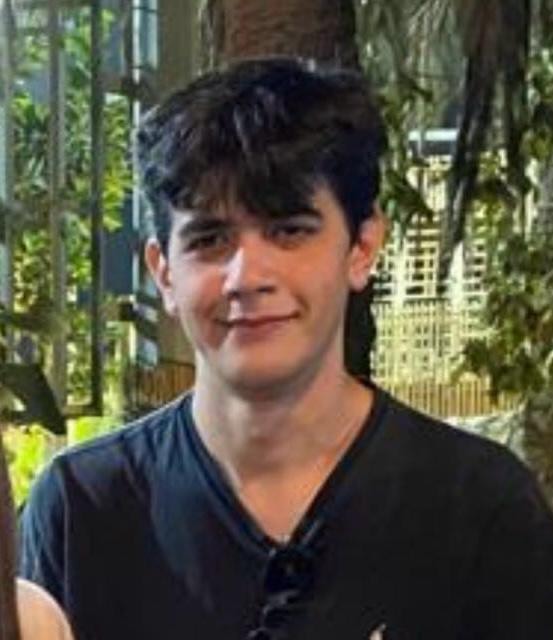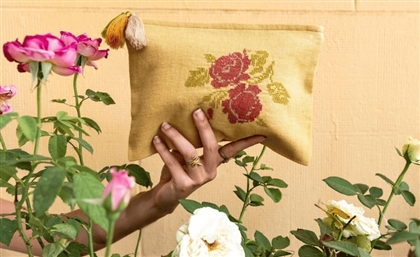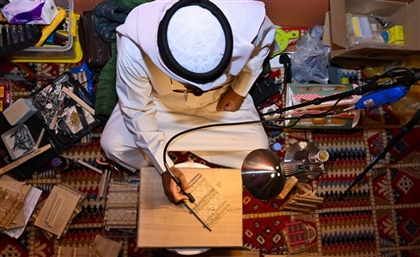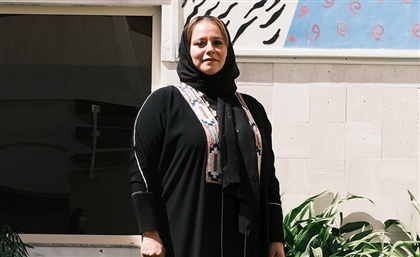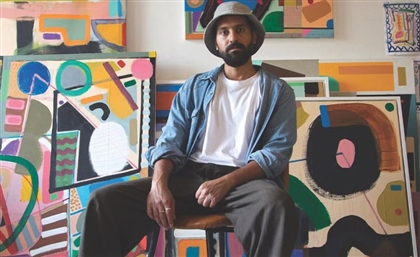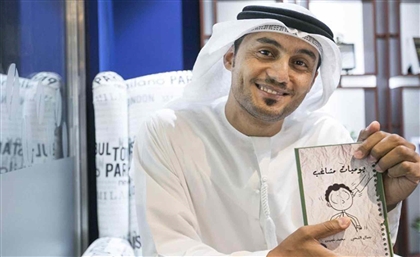Saudi Arabia Goes to Drama Therapy With Lujaïn Faqerah
Senior psychologist Lujaïn Faqerah uses drama therapy to foster emotional well-being amidst Saudi Arabia's cultural shift.
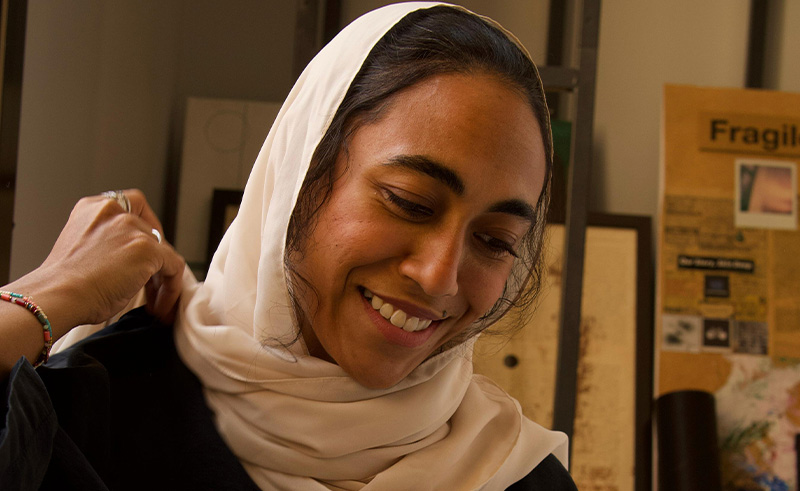
he historic Cinema Al-Balad in Riyadh recently became the setting for a unique drama therapy workshop. Participants were guided to silently embody childhood memories through repeated gestures, an experience led by Lujaïn Faqerah, a senior psychologist engaging with a nation embracing its burgeoning creative scene.
During the workshop, one person intently adjusted imaginary glasses on their nose, while another swayed rhythmically, lost in silent movement. Soon, the room filled with quiet, repetitive, and deeply personal actions. Afterwards, Faqerah told me, “Someone simply knocked on a table. That was his sole contribution.” In the world of drama therapy, a simple action—like knocking, winking, or waving—can be the signaling of something psychologically profound. “He was like, ‘tick tick,’ and then again, ‘tuck tuck,’ and then again, ‘tick tick,” Faqera explains. “It became a rhythm. It was the start of something.” Ultimately, the end goal of drama therapy is to create a comfortable atmosphere, free from pressure or judgment. Faqerah is working to facilitate the practice as Saudi Arabia undergoes one of the most rapid cultural shifts in modern history.
But where does it begin? Lujaïn Faqerah's journey to becoming a drama therapist in Saudi Arabia is unique. Her interest in the arts began early with a childhood passion for drawing, but when she pursued psychology in college, she initially viewed art as a separate hobby. It was during her second year, in a counseling psychology course, that she first encountered the concept of art therapy, a revelation that immediately captivated her. She initially wanted to focus solely on art therapy, but her curiosity expanded as she discovered the broader field of creative arts supervision-119ac5ec-da11-46c8-ab30-658046fc18f5.jpg)
This pursuit led her to London, where she enrolled in a year-long training program. There, a pivotal moment occurred: the program unexpectedly centred on drama therapy. Faqerah, who initially believed it was "just for actors and people who know how to act," felt like an outsider among 15 seasoned drama therapists. Doubts crept in: "I felt like, I'm not good enough to be in this drama therapy thing," she said. Yet, it was through this very discipline that she experienced a profound personal shift. The impact was immediate, unlike the often-gradual effects of traditional talk therapy. "I thought, ‘Oh my God, if this is how it feels, then I want everyone to feel the same’.”
As the Kingdom’s creative floodgates open, Faqerah’s work has become more crucial than ever. "The art scene in Saudi is getting richer and richer, and people are more drawn to it," she explains. With this boom in cinema, theater, and visual arts, there is a burgeoning need to support the creators behind it. "They're trying to find everything that would help this grow in a healthy way, in a creative way, but in more in a professional way." Faqerah is providing just that: a psychological toolkit for a new generation of artists and citizens navigating uncharted emotional and professional territory.
Faqerah's workshop methodology focuses on building trust. Instead of demanding participants act or perform, she invites them to create a group "sculpture" to represent an abstract concept, like a creative block. By removing the pressure to perform, she creates a space safe enough for genuine expression. Her leadership comes from within the circle, not from a director’s chair. "I wouldn't be shy to act silly in front of them," she says. "So they feel like, okay, if she can do this, and if she's comfortable to do this in front of me, then I'm comfortable to do this as well."
-1233a037-0c8a-41bc-8f03-8b3c5f0a0767.jpg)
While her methods are playful, they are rooted in hard science. Faqerah connects her practice directly to the mechanics of our minds and bodies. "I feel like the neuropsychology, I would say, polyvagal theory, and then the drama and the movement; they all come together hand in hand." By translating psychological states into physical motion—slowing down an anxious walk to a slow-motion glide, for instance—participants can actively engage with and regulate their own nervous systems. "I feel this makes the therapy so much deeper and enriching," she adds.
This approach comes at a perfect time. The stigma around mental health in Saudi Arabia is fading, replaced instead by curiosity and, in some circles, a sense of pride. "Sometimes for the younger generation, it's like a luxury thing to have a therapist," Faqerah says. "They're like, oh, I have my own therapist, and it's cool." The infrastructure has expanded to meet this growing interest. Try this statistic: in the early 1980s there were only two psychiatric hospitals in the whole of the Kingdom. Today, there are at least 21.
Crucially, the newness of Faqerah’s field gives it a strategic advantage. Without the preconceived notions that can sometimes weigh down traditional talk therapy, people are more willing to engage, play, and discover.
-99368d82-0aec-4ed5-896e-5a8be69cab73.jpg) Back at Cinema Al-Balad, during that Faqerah’s event, after the ice was broken, seven volunteers eventually made their way to the stage, molding their bodies into a collective shape of a shared challenge. The laughter and engagement were palpable. Lujaïn Faqerah successfully turned a stage of potential anxiety into a nexus for emotional connection. While that workshop was a standalone event, she is just getting started with her vision. She envisions more workshops, tailored for comedians at a comedy club, for visual artists struggling with a block, for actors seeking to deepen their craft. In a nation writing its next act, Lujaïn Faqerah is ensuring its people have the tools not just to perform, but to thrive.
Back at Cinema Al-Balad, during that Faqerah’s event, after the ice was broken, seven volunteers eventually made their way to the stage, molding their bodies into a collective shape of a shared challenge. The laughter and engagement were palpable. Lujaïn Faqerah successfully turned a stage of potential anxiety into a nexus for emotional connection. While that workshop was a standalone event, she is just getting started with her vision. She envisions more workshops, tailored for comedians at a comedy club, for visual artists struggling with a block, for actors seeking to deepen their craft. In a nation writing its next act, Lujaïn Faqerah is ensuring its people have the tools not just to perform, but to thrive.







